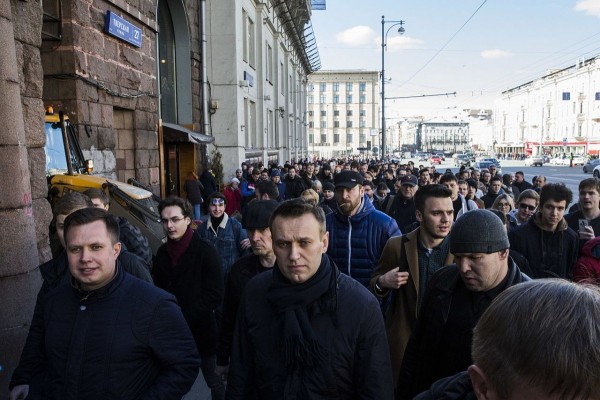-
_600_400_90_s_c1.jpg)
Myths and reality about the Ukraine war
However one views Russia’s invasion, argues David Mandel, to support pursuit of the war by Kyiv until victory, until all lost territory has been regained, and to call for Russia’s strategic defeat, is to support a profoundly criminal policy, since the goal is unrealizable. Its pursuit will not change the outcome of the war but will continue to destroy Ukraine.
-

The tragedy of the war in Ukraine: a reply to Kagarlitsky
Even if Ukraine were in some sense to win the war, what sort of sovereignty would the Ukrainian people, its working class, possess? What social forces would be dominant in this victorious Ukrainian state, where all opposition parties and media have been banned and whose reconstruction would depend entirely on American and European generosity?
-

Understanding Alexei Navalny
Alexei Navalny’s courage cannot be doubted. But a large majority of Russians do not see him as a credible alternative. Although Russians are far from enamoured with the present regime, they fear what might come to replace it. And they do not have to look far to see the altogether dubious results of populist movements in the former Soviet Union.
-

They dared: the legacy of the October Revolution
The legacy of the October Revolution for the left today is, in fact, the least ambiguous. It can be summed up in two words: “They dared.” By that, I mean that the Bolsheviks, in organizing the revolutionary seizure of political and economic power and its defence from the propertied classes, were true to their mission as a workers’ party: they provided the workers with the leadership that they needed and wanted.
-

Understanding the civil war in Ukraine
The roots of the Ukrainian conflict are domestic and profound; outside intervention, while significant, is a secondary factor. David Mandel explores the complexities of the conflict.
-

Ukraine Between ‘Popular Uprising for Democracy’ and ‘Fascist Putsch’
The geopolitics around the Ukraine are incredibly volatile, with conflicting interests and histories slowly playing themselves out. David Mandel examines this fragile political struggle.



